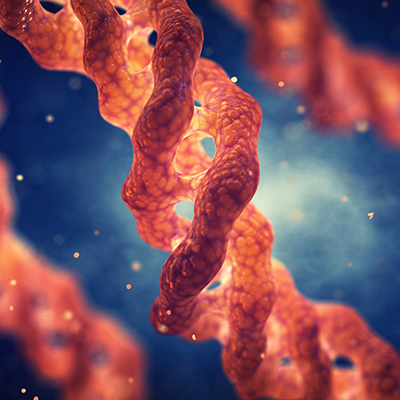November 2, 2022 -- An international team of scientists has discovered how cancer cells exposed to high viscosity environments -- or resistance to flow of the extracellular fluid that surrounds cells -- change the way they move to improve their invasiveness and favor metastases.
In a study published November 2 in the journal Nature, the researchers lay out a novel mechanism that promotes cancer cell dissemination which they contend could lead to the identification of potential new targets to combat metastasis.
After exposing cancer cells to high viscosity, the scientists found that the first cellular element that responded to this stimulus was the protein actin, which is part of the cytoskeleton and shapes the body of the cell. This initiates a cascade of molecular events that ends with the activation of a protein called TRPV4 -- an ion channel that facilitates the entry of calcium into the cell -- which in turn activates a cascade of intracellular events that result in the reinforcement of the cell cytoskeleton and the activation of motor proteins.
When the research team knocked down TPRV4, they blocked the faster movement of cells and their ability to form memory in response to preexposure to elevated viscosities. Using three-day-old zebrafish embryo models, they demonstrated that memory of elevated viscosity can enable cells to move faster through blood vessels in vivo. Chicken embryo and mouse models were also used to show that the memory can bolster cancer cell spread out of blood vessels -- through a process called extravasation -- and result in a greater number of distant metastatic colonies.
"We clarified how cells sense and respond to physiologically relevant levels of fluid viscosity that are commonly found in the body of healthy and diseased patients," Konstantinos Konstantopoulos, PhD, the study's lead investigator and member of the Johns Hopkins Kimmel Cancer Center Invasion and Metastasis Program, said in a statement. "We also showed that cells have the ability to form memory when preexposed to elevated fluid viscosities."
Konstantopoulos believes the team's findings "will compel researchers in other fields, beyond cancer mechanobiology, to consider fluid viscosity as a key physical cue that regulates cell responses."
Copyright © 2022 scienceboard.net










